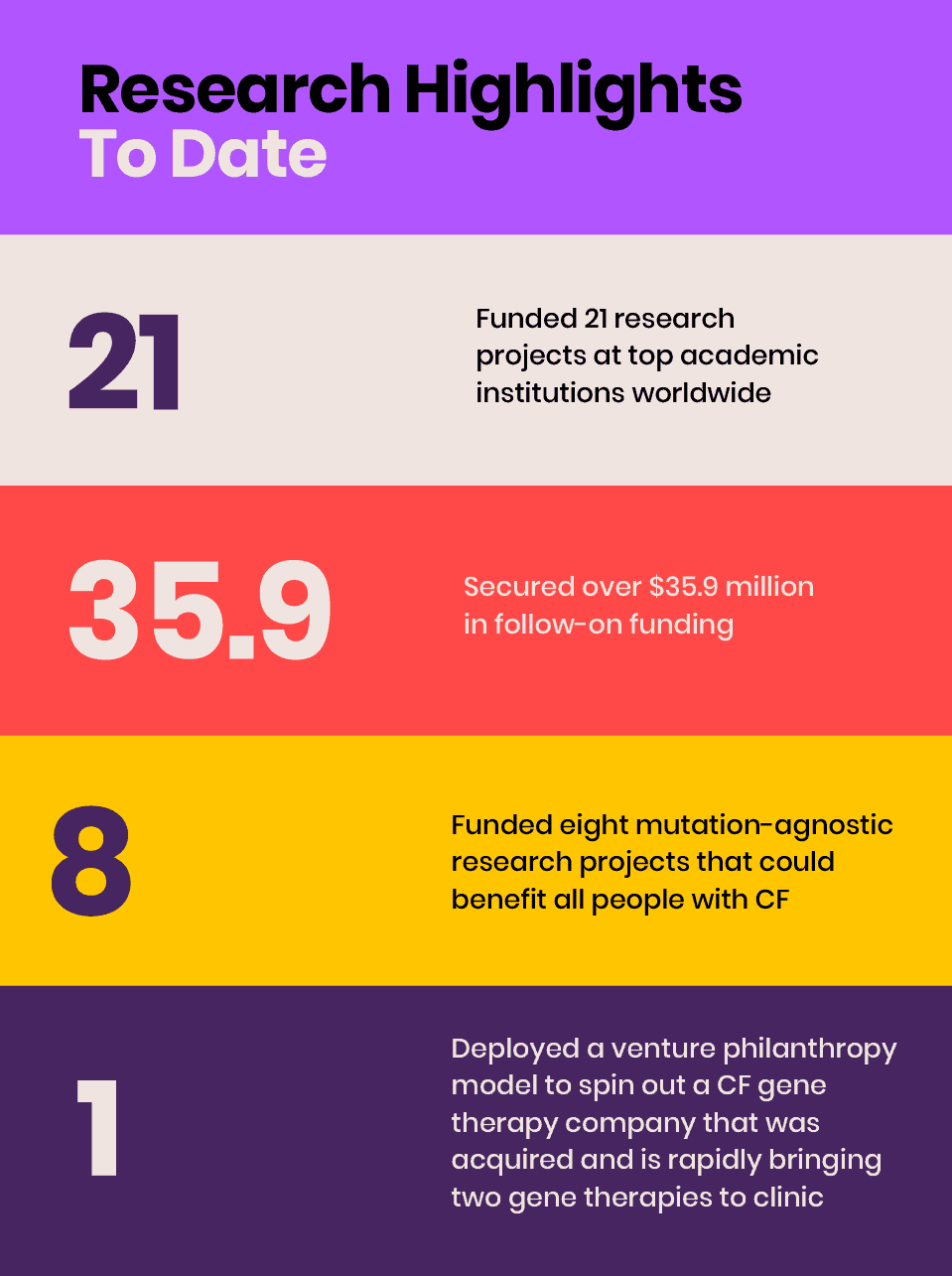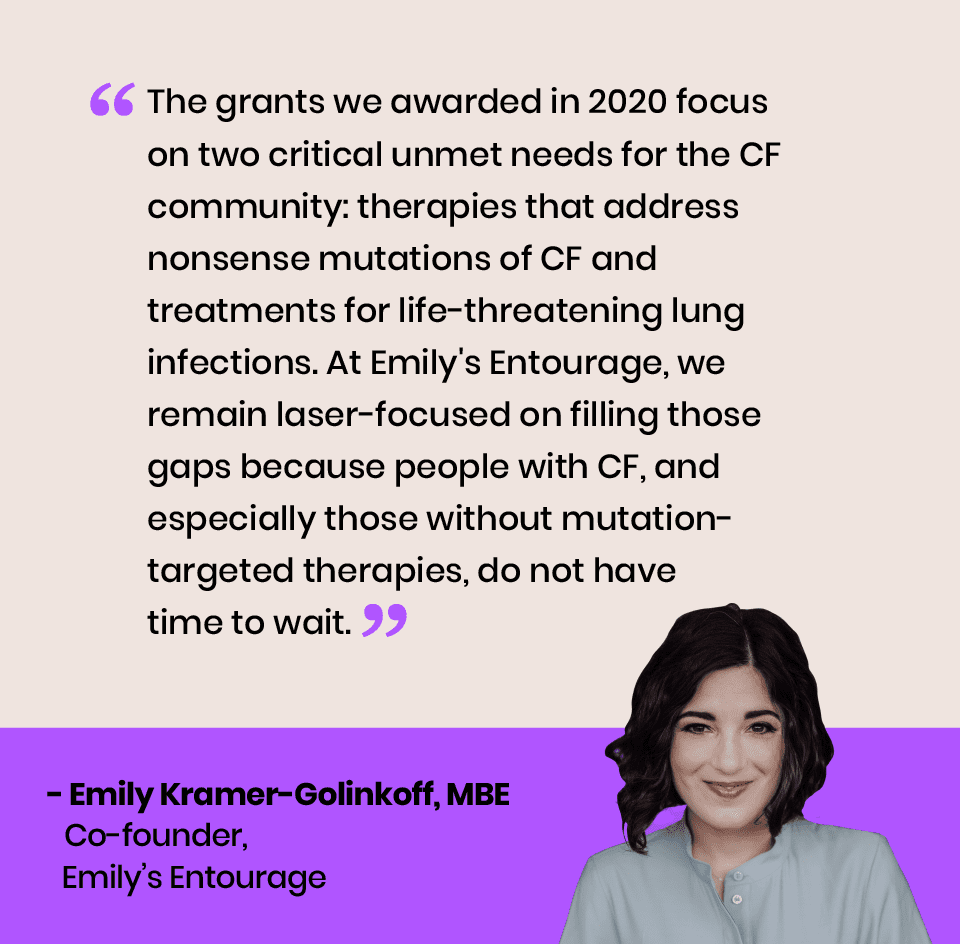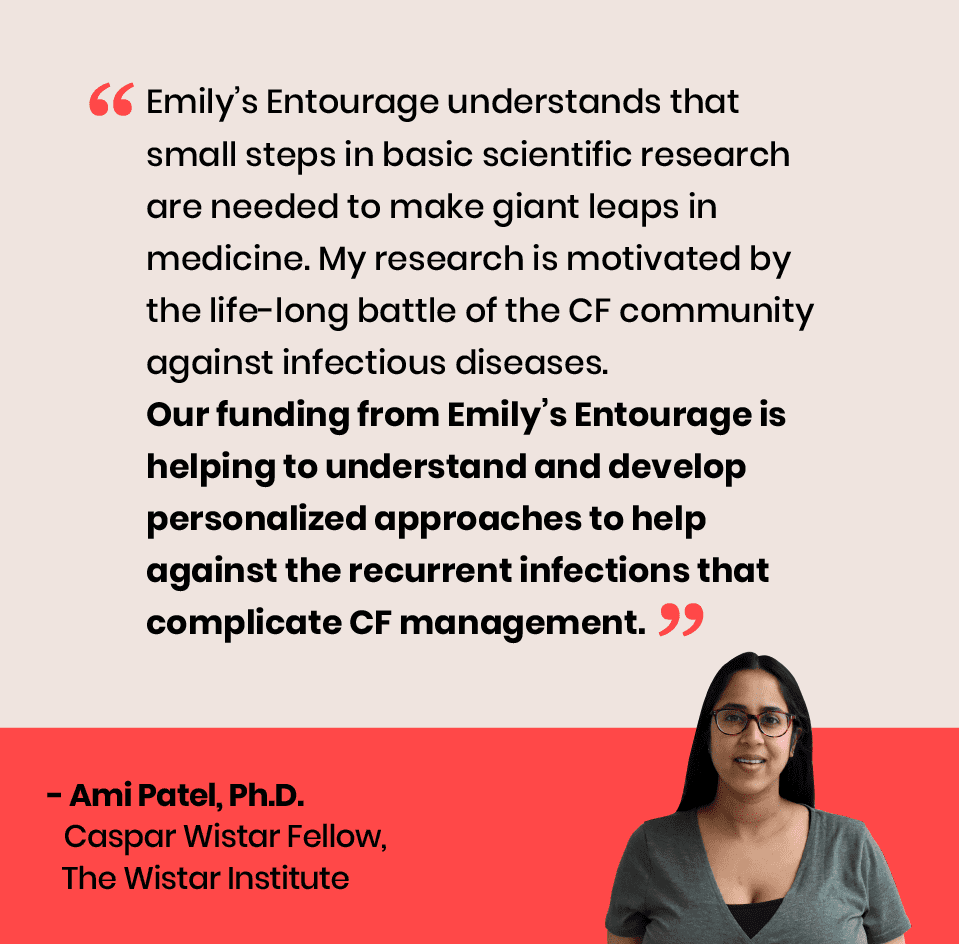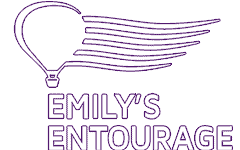
Research Funded
Accelerating Lifesaving Therapies Through Research Grants
From the start, Emily’s Entourage (EE) has been laser-focused on speeding the development of lifesaving therapeutics for those with CF nonsense mutations who are part of the outlying 10% of the CF community that does not benefit from existing mutation-targeted therapies. Specifically, EE aims to fill critical unmet needs for those in this group by enabling projects that may not have received funding or making them happen faster than they otherwise would.
As of 2020, EE has awarded $4.8 million to fund 21 innovative research grants at top academic institutions worldwide.

While EE remains as committed as ever to speeding genetic and transformative approaches to addressing the underlying defect in CF, at the end of the day, what drives disease progression and mortality in people with CF — and what threatens their ability to wait for transformative therapies — are infections, specifically drug-resistant infections.
With that in mind, this past year, EE focused on expanding its “buying time” initiative, which supports the development of bridge therapies to sustain people while they wait for breakthrough therapies to advance.

In the fifth round of grant funding supported by the Catalyst for the Cure fund, three of the four funded grants were part of the “buying time” initiative, each focused on innovative approaches to treating bacterial resistant infections in CF respiratory passages. These projects included:
- Development of a phage lysin to kill antibiotic-resistant MRSA in the nose and lungs of individuals with CF (Vincent A. Fischetti, PhD, The Rockefeller University)
- Development of two novel, personalized methods to treat MRSA, including a synthetic DNA vaccine as well as DNA-engineered antibodies (Ami Patel, PhD, The Wistar Institute)
- Development of a panel of phage targeting MRSA in CF lungs, advancement of MRSA phage cocktails, and dissemination to physicians and researchers to facilitate phage therapy (David T. Pride, MD, PhD, Robert ‘Chip’ Schooley, MD, Steffanie Strathdee, PhD, University of California San Diego Center for Innovative Phage Applications)
Importantly, these approaches benefit all people with CF, regardless of mutation — but they are most pressing for those who do not benefit from existing mutation-targeted therapies and for whom bacterial infections remain an unchecked threat.

The fourth grant funded a novel approach utilizing exon skipping, a form of RNA splicing used to to “skip” over sections of genetic code, for the treatment of the W1282X nonsense mutation.
- Development of synthetic antisense oligonucleotides (ASOs) to induce the skipping of exon 23 to achieve increased functionality in the mutated CFTR gene (Adrian R. Krainer, PhD, Cold Spring Harbor Laboratory)
For a full listing of awarded grants, please click here.
Projects funded by EE’s grant program have advanced with notable success, securing over $35.9M in follow-on funds and publication in top, peer-reviewed academic journals. The rapid progress to date demonstrates EE’s ability to identify the most promising science, convene the leading players, and use novel funding mechanisms to bring transformative new treatments to individuals with CF quickly.
Where Are They Now?
In 2018, EE funded an innovative research project using amphotericin B, an already approved antifungal drug, as a molecular “prosthetic” to replace the missing CFTR ion channel, led by Martin D. Burke, MD, PhD, University of Illinois at Urbana-Champaign, and Michael J. Welsh, MD, University of Iowa.
Supported in part by EE’s grant, the study produced compelling data, which helped the team secure a large grant from the National Institutes of Health (NIH) and warranted the spinout of a new company, cystetic Medicines. cystetic Medicines went on to secure $25 million in financing from Deerfield Management to develop the treatment into a new therapy for all people with CF, regardless of their genetic mutation.
EE-Funded Scientists Present Research at NACFC
Five EE-funded scientists and researchers presented at the 2020 North American CF Conference (NACFC), reflecting EE’s ability to identify and advance promising research and get it on the radar screen of larger funding organizations like the Cystic Fibrosis Foundation (CFF). Craig Hodges, PhD, (Case Western Reserve University) presented his research on the development of W1282X-CFTR murine models in both a symposium session and posters. Venky Mutyam, PhD, (University of Alabama at Birmingham) had a poster on the testing of both approved and novel therapeutics in W1282X-CFTR cell models. Finally, the Yale University phage group, led by Ben Chan, PhD, Jon Koff, MD, and Paul Turner, PhD, presented in a workshop session and three poster presentations on their development of phage therapy for treatment of MRSA.
